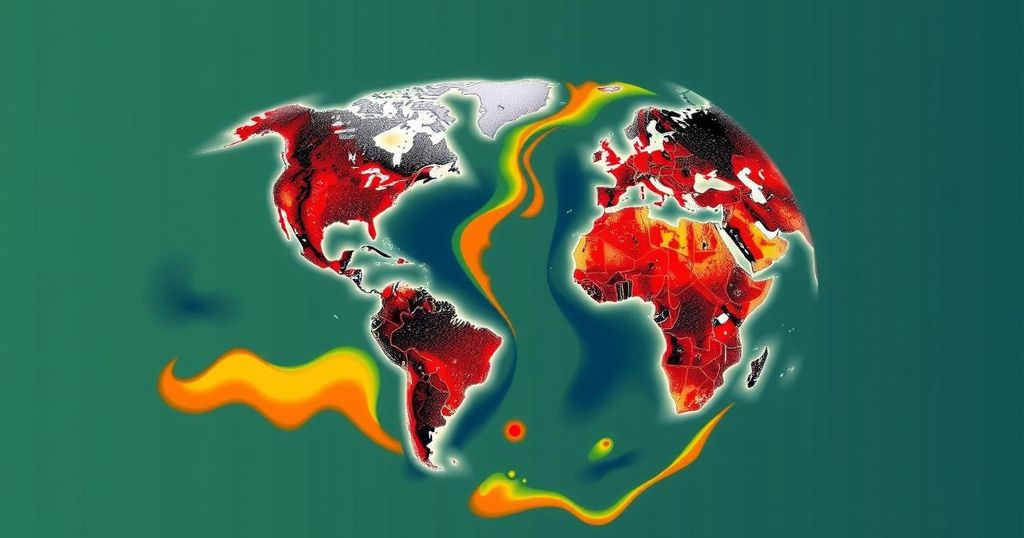UN Report Highlights Urgency of Climate Action: Global Warming Could Exceed 3 Degrees Celsius by 2100
A UN report warns that without immediate action, global temperatures could rise by over 3 degrees Celsius (5.4 degrees Fahrenheit) by 2100, significantly surpassing the 1.5 C target set in the Paris Agreement. Current emissions levels continue to rise, necessitating urgent global efforts to reduce greenhouse gas emissions.
According to a recent report from the United Nations, the current trajectory of climate policies is expected to lead to a global temperature increase of more than 3 degrees Celsius (5.4 degrees Fahrenheit) by the year 2100. This projection far exceeds the 1.5 C (2.7 F) limit that countries pledged to uphold under the Paris Agreement nearly a decade ago. The annual Emissions Gap report evaluates the commitments made by nations in their efforts to combat climate change and emphasizes that without substantial and immediate action to curb greenhouse gas emissions, the world could face a warming of up to 3.1 C (5.6 F) above pre-industrial levels by the end of the century. In light of this, U.N. Secretary General Antonio Guterres warned, “We are teetering on a planetary tightrope… either leaders bridge the emissions gap, or we plunge headlong into climate disaster.” The report also highlighted that global greenhouse gas emissions achieved a new high, rising by 1.3% between 2022 and 2023 to 57.1 gigatonnes of carbon dioxide equivalent. Presently, under the existing pledges made by nations, the expected rise in temperatures could remain between 2.6 C (4.7 F) and 2.8 C (5 F) by 2100, indicating minimal progress towards reducing emissions effectively. Reports indicate that the major economies, particularly those within the G20, have shown insufficient advancement towards their established climate targets for the year 2030. As global warming currently stands at approximately 1.3 C (2.3 F), nations are set to convene at the upcoming annual United Nations climate summit (COP29) in Azerbaijan, where they will seek to enhance their commitments to phase out fossil fuels and collaboratively establish improved strategies for emissions reduction. It is imperative, as outlined in the report, that countries collectively pursue a 42% reduction in annual greenhouse gas emissions by 2030, scaling this target to a 57% reduction by 2035, if there remains any hope of limiting warming to below 1.5 C. Inger Andersen, executive director of the United Nations Environment Programme, underscored the importance of this assembly, stating, “Every fraction of a degree avoided counts.”
The issue of climate change has become increasingly critical over the past few decades, with nations working towards minimizing global warming through various agreements and pledges. The Paris Agreement, signed in 2015, set ambitious goals to limit temperature increases and mitigate the effects of climate change. However, numerous reports, including the Emissions Gap report from the United Nations, have indicated that despite these commitments, actual progress remains insufficient. The urgency to address these growing challenges has led to calls for more proactive measures and cooperative strategies among nations to ensure sustainable environmental practices.
In summary, the United Nations’ Emissions Gap report serves as a stark reminder that without greater commitment to reducing greenhouse gas emissions, the world is likely to experience significant temperature increases by the end of the century. Current policies are inadequate, and substantial reductions in emissions are necessary to avoid catastrophic consequences for the planet. The upcoming COP29 summit is a critical opportunity for nations to enhance their commitments and take decisive action against climate change.
Original Source: www.theweathernetwork.com




Post Comment